2016 presidential hopefuls react to SCOTUS Obamacare ruling
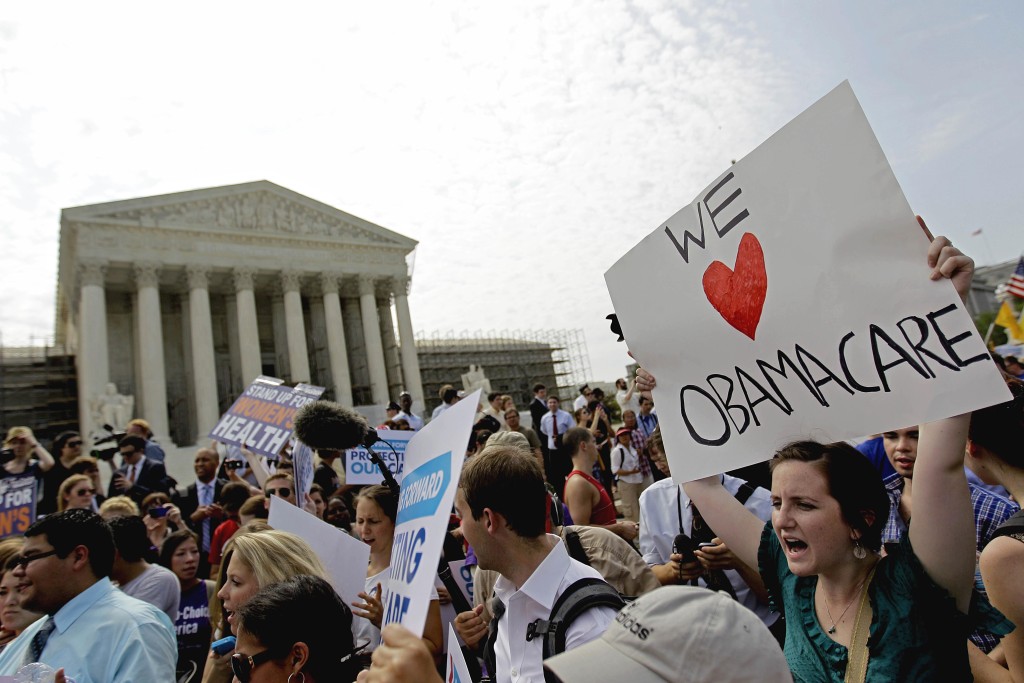
In the wake of Thursday’s Supreme Court ruling in favor of a key part of President Barack Obama‘s signature health care law on Thursday, 2016 presidential hopefuls were quick to weigh in with their opinions of the 6-3 decision. Here’s a compilation of how the candidates reacted to the SCOTUS Obamacare ruling: Former Florida Gov. Jeb Bush: I am disappointed by today’s Supreme Court ruling in the King v. Burwell case. But this decision is not the end of the fight against Obamacare. This fatally flawed law imposes job-killing mandates, causes spending in Washington to skyrocket by $1.7 trillion, raises taxes by $1 trillion and drives up health care costs. Instead of fixing our health care system, it made the problems worse. As president of the United States, I would make fixing our broken health care system one of my top priorities. I will work with Congress to repeal and replace this flawed law with conservative reforms that empower consumers with more choices and control over their health care decisions. Ben Carson: Obamacare fundamentally increases the power of the government over the people and healthcare providers. While I resent what the court has done, it only causes me to work even harder to make sure the next president will repeal and replace Obamacare with sensible consumer empowering solutions that remove the government from the patient/doctor relationship. Those of us who pledge to repeal Obamacare must redouble our efforts and not waste time and energy mourning today’s ruling. Hillary Clinton: I applaud the Supreme Court’s decision to affirm what the authors of the Affordable Care Act clearly intended and wrote into law: that health insurance should be affordable and available in every state across the country. Republicans in Congress have waged a sustained attack against this promise. They’ve voted more than 50 times to repeal or dismantle the law, roll back coverage for millions of Americans, and let insurers write their own rules again – all without proposing any viable alternatives. Now that the Supreme Court has once again re-affirmed the ACA as the law of the land, it’s time for the Republican attacks to end. It’s time to move on. Read more here Sen. Ted Cruz: Today’s decision in King v. Burwell is judicial activism, plain and simple. For the second time in just a few years, a handful of unelected judges has rewritten the text of Obamacare in order to impose this failed law on millions of Americans. The first time, the court ignored federal law and magically transformed a statutory ‘penalty’ into a ‘tax.’ Today, these robed Houdinis transmogrified a ‘federal exchange’ into an exchange ‘established by the state.’ As Justice Scalia rightfully put it, ‘Words no longer have meaning if an exchange that is not established by a state is ‘established by the state.” He also said, ‘We should start calling this law SCOTUSCare’ – I agree. Carly Fiorina: Obamacare has not lived up to what we were promised. Instead of allowing those with insurance to stay on the plans they knew and liked, millions of people have been compelled to buy health plans that they didn’t want. Many have been forced to move to Medicaid and yet more doctors are refusing to take Medicaid patients under this law. We were promised improved access and higher-quality care, but the complexity of ObamaCare is preventing the very competition that would allow more and better options for patients. Instead, hospitals, drug companies, and insurance companies are all consolidating. The lasting solution here is what we’ve been saying all along. We need to repeal ObamaCare. Sen. Lindsey Graham: If you want to repeal and replace Obamacare with something better for your family—bipartisan—vote Republican. Former Gov. Mike Huckabee: Today’s King v. Burwell decision, which protects and expands ObamaCare, is an out-of-control act of judicial tyranny,” Huckabee said in a statement. “Our Founding Fathers didn’t create a ‘do-over’ provision in our Constitution that allows unelected, Supreme Court justices the power to circumvent Congress and rewrite bad laws. The Supreme Court cannot legislate from the bench, ignore the Constitution, and pass a multi-trillion dollar ‘fix’ to ObamaCare simply because Congress misread what the states would actually do. The architects and authors of ObamaCare were intentional in the way they wrote the law. The courts have no constitutional authority to rescue Congress from creating bad law. The solution is for Congress to admit they screwed up, repeal the ‘nightmare of Obamacare’, and let states road-test real health care reforms. Gov. Bobby Jindal: Today, the Supreme Court had its say; soon, the American people will have theirs. President Obama would like this to be the end of the debate on Obamacare, but it isn’t. Now that the Supreme Court has ruled, the debate will grow. Conservatives must be fearless in demanding that our leaders in Washington repeal and replace Obamacare with a plan that will lower health care costs and restore freedom. Former Gov. Martin O’Malley: The Affordable Care Act has helped more than 17 million Americans access quality and affordable health coverage. Now that the Supreme Court has, once again, upheld the Affordable Care Act, we must continue to build and improve upon this hard-won progress. With the national goal of universal coverage now affirmed, we must reduce costs by improving wellness. Innovations for better coordinated care, personalized medicine, and the alignment of profit incentives to promote wellness make all of this possible. Sen. Rand Paul: This decision turns both the rule of law and common sense on its head. Obamacare raises taxes, harms patients and doctors, and is the wrong fix for America’s health care system. As President I would make it my mission to repeal it, and propose real solutions for our healthcare system. As a physician I know Americans need a healthcare system that reconnects patients, families, and doctors, rather than growing government bureaucracy. Former Gov. Rick Perry: The Obama Administration has ignored the text of the Affordable Care Act time and again, and today’s ruling allows them to continue to disregard the letter of the law. While I disagree with
Hillary Clinton aims to raise just-right amount for ’16 campaign

The stars are out to raise money for Hillary Rodham Clinton: Lady Gaga and Tony Bennett at the Plaza Hotel, Jon Bon Jovi at home in Jersey. So, too, are the Democratic Party’s wealthiest donors, from a Facebook co-founder to the heiress of a brewing fortune. Yet even as Clinton picks up the pace of fundraising this month, the front-runner for her party’s presidential nomination is holding back in some ways — a “just enough” strategy that her supporters say will pay off over time. The goal when she files her first fundraising report next month is to post a number that reassures Democrats she will have the resources to compete with the eventual Republican nominee, but doesn’t chase away the small-dollar donors who would make up her strongest base of support in the general election. “Her approach has been smart, disciplined and focused on the long-term,” said Chris Lehane, a Democratic strategist who worked with hedge fund billionaire Tom Steyer on one of Clinton’s first fundraisers this year. Lehane said the 100-person reception sold out within 24 hours. “They easily could have put on a far bigger event of 1,000 people or more.” Clinton’s supporters have tried to tamp down the expectations for the fundraising totals her campaign will disclose next month, when she and the other declared candidates for president will report how much they have raised through the end of June. Unlike in 2008, Clinton is collecting money only for the primary contest, an amount capped at $2,700 per individual. If Clinton wins the Democratic nomination, she can return to her donors to ask for another $2,700 for the general election. Since announcing her candidacy in mid-April, Clinton has raised at least $17 million, based on the number of people her campaign says have attended 49 fundraising events through Tuesday night. She held fundraisers Tuesday in Chicago and in St. Louis, where she raised money at Grant’s Farm, a historic home owned by the Busch family, at an event hosted by beer heiress Trudy Busch Valentine. Clinton is focused primarily on raising money for her actual campaign. Others have emphasized super PACs, which can accept donations of unlimited size but are prohibited from coordinating directly with the candidates they support. Republican Jeb Bush spent six months raising money for a super PAC before beginning traditional campaign fundraising. That approach has helped him amass as much as $100 million already. Most of Clinton’s fundraisers have also been smaller events at private homes, with audiences of no more than 250 people each giving the maximum. While backers says she could draw much larger crowds, many of the events have been half that size, putting the former secretary of state into what supporters say is her comfort zone. “She was phenomenal,” said John Morgan, a Florida lawyer who held a 220-person reception last month at his home near Orlando. “She took a photo with every single guest.” Many of the biggest Democratic donors have already feted Clinton, or plan to in the next few weeks. Among them: billionaire Facebook co-founder Chris Hughes and Chicago media billionaire Fred Eychaner. And she’s relied upon celebrities, too. “Spiderman” star Tobey Maguire held a backyard event last week that raised $500,000. Next week, Bon Jovi will perform at his New Jersey home for Clinton and some of her donors. Among small donors — those who give $200 or less, usually online — Clinton has competition. The campaign of Vermont Sen. Bernie Sanders has suggested it has raised $8 million, with an average contribution amount of $40, through mid-June. Yet Clinton is also applying some of the best practices of President Barack Obama, who raised almost 65 percent of the $33.2 million he collected in the first three months of his re-election campaign from small-dollar donors. Her campaign this week has been promoting a raffle to attend dinner with Clinton. She is hawking cutesy souvenirs such as $30 red T-shirts that look like her go-to pantsuits. And the campaign has an array of $20 happy hours planned, including one Friday at Union Cafe in Columbus, Ohio. Kiki McLean, a former 2008 Clinton campaign adviser, headlined a happy hour Tuesday night in Washington. McLean said she has no official role with the campaign, but said small events such as hers encourage involvement. “I want to make sure they are up to speed on what they can do as volunteers,” McLean said, “just like me.” Republished with permission of The Associated Press.
Auditor Jim Zeigler calls governor’s flag order “deceptive political move”
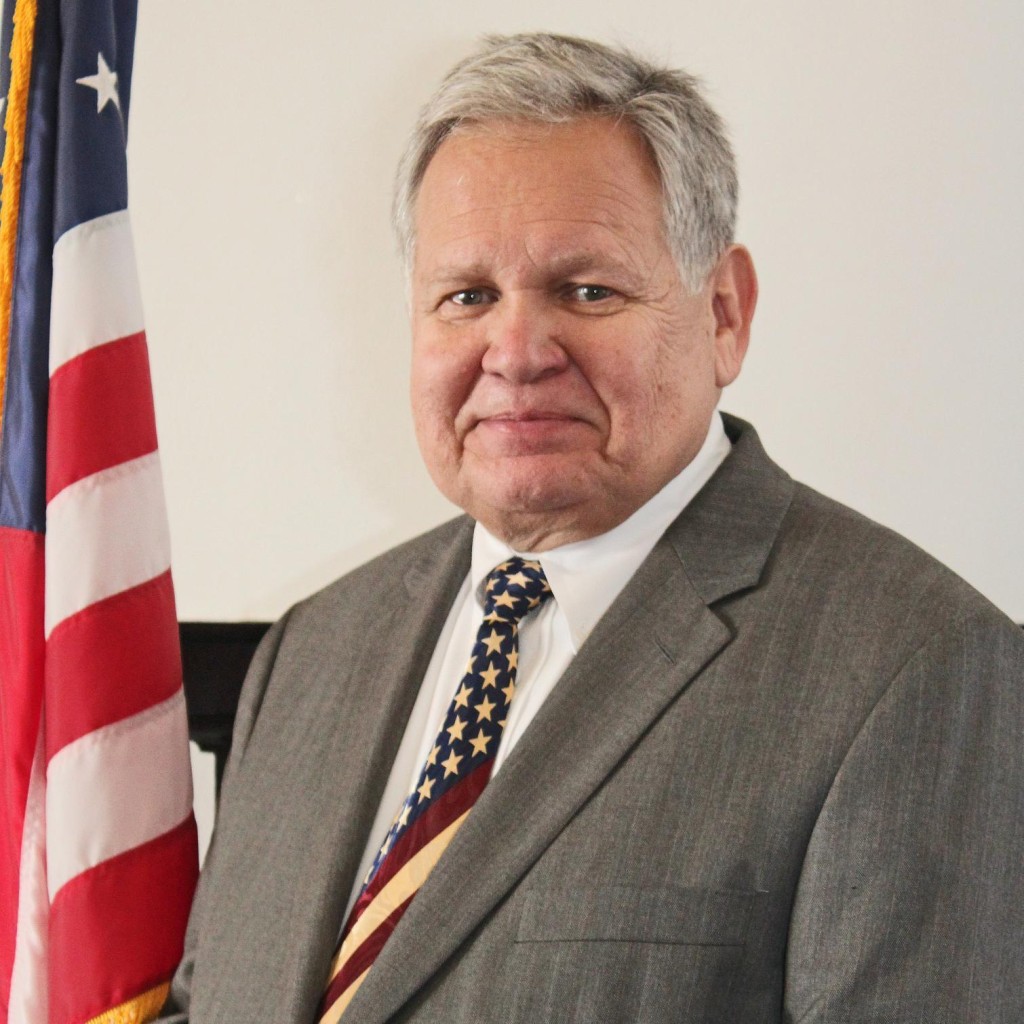
Auditor Jim Zeigler has his own ideas about Gov. Robert Bentley’s order to remove the Confederate flags from Capitol grounds. Zeigler says it was simply a “deceptive political move.” In a statement released Wednesday night Zeigler proposed an alternative theory to the governor’s defense that he removed the flag out of respect for those involved in the shooting as well that it could be a distraction as legislators prepare for Special Session. Zeigler said, “Gov. Bentley’s tax increase bills cannot pass without strong support from Democrats in the state Legislature. He decided to remove the Confederate flag as a way to shore up support among Democratic legislators.” Zeigler pointed to a quote from Bentley that Alabama Today highlighted Wednesday in a post about potential tax increases. Bentley told reporters from AL.Com, “We are facing some major issues in this state regarding the budget and other matters that we need to deal with. This had the potential to become a major distraction as we go forward. I have taxes to raise, we have work to do. And it was my decision that the flag needed to come down.” Zeigler said the quote is telling: “The governor’s unguarded comment is an admission that the motivation for the flag removal was political. The flag removal was done without input from the citizens and without advance notice. This governor does not consider what citizens want or need. He is dictating decisions from on high. He does not have a servant mentality — that he is there to serve the people. The flag removal is a perfect example of this elitism.” Zeigler said he spent Thursday researching the legalities of the governor’s action but has not yet come up with a legal strategy to return the Confederate flag. Zeigler has long been an outspoken critic of what he calls the “sneaky new way of doing things in Montgomery.” This year he led the opposition when portraits of Govs. George and Lurleen Wallace were removed from the Capitol rotunda. He closed his statement asking asking questions and making assertions about the motives of the governor, “Where will this stop? Will they remove the confederate monuments? Close the First White House of the Confederacy? Pull up the gold star on which Jefferson Davis was inaugurated president of the Confederacy? This simplistic action does nothing to stop evil mass murderers. All Gov. Bentley has done is to act like he was doing something. He and his advisers are making themselves feel better. This is not leadership but reactive posturing.”
New Jersey Gov. Chris Christie to run for president in 2016, will announce Tuesday
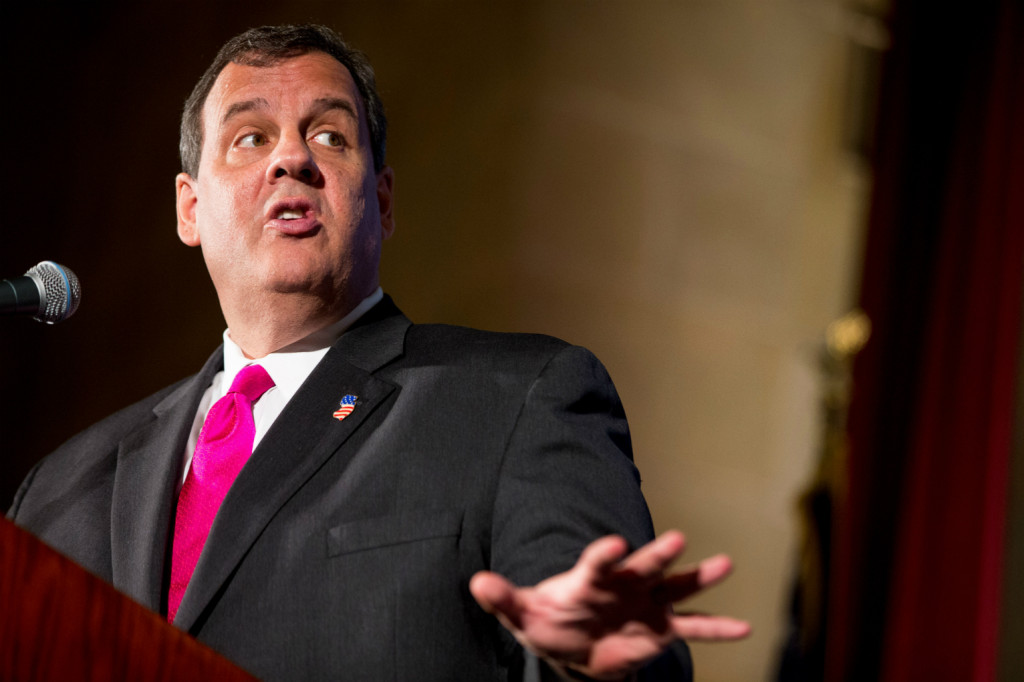
New Jersey Gov. Chris Christie will announce Tuesday he is running for president in 2016. That’s according to two people familiar with his plans. They say the formal announcement will be at Christie‘s old high school. The Republican governor has been laying the groundwork for months. Christie considered a bid in 2012 before deciding to pass on a campaign. He joins a field of more than a dozen major candidates for the GOP nomination. Once considered an early front-runner, Christie has yet to build momentum in the early days of the race. The people spoke to The Associated Press on condition of anonymity because they were not authorized to pre-empt Christie‘s formal announcement. Republished with permission of The Associated Press.
Gary Palmer backs EPA ‘overreach’ bill delaying new emissions rules
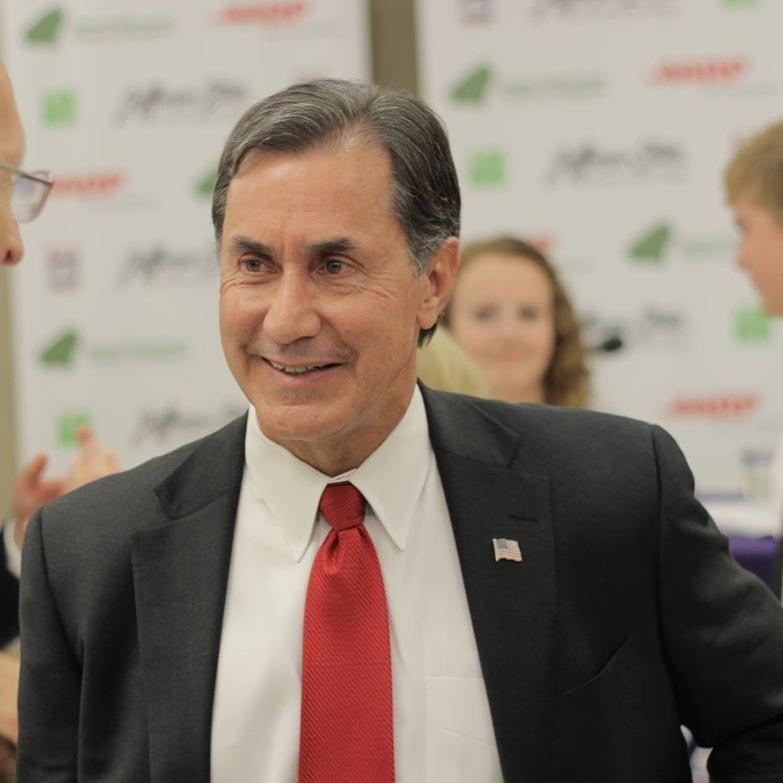
On Wednesday, U.S. Rep. Gary Palmer took part in a dual effort in Congress to stop what he called “overregulation” aimed at delaying the implementation of new rules under the federal Clean Air Act of 1963. Palmer said the regulatory changes were coercive in nature and constitute a de facto regressive tax increase as he argued in favor of the “Ratepayer Protection Act,” which passed the House 287-180 yesterday and now goes before the Senate for a vote. Palmer, who represents Alabama’s 6th congressional district based in the suburbs of Birmingham, offered a scathing critique of the Environmental Protection Agency, whose power to tighten restrictions on energy production as part of new so-called Clean Power Plant requirements is authorized under the Clean Air Act. “The EPA makes a habit out of claiming more authority than it rightfully has, particularly under this Administration,” said Palmer in a news release Wednesday. “The EPA’s proposed ‘Clean Power Plant’ rule is an example of this. This rule would require power plants to reduce emissions by 30% in the next 15 years in order to achieve little to no environmental benefit. According to the NERA, an economic consulting and analysis firm, this proposal would cost between $41 and $73 billion per year. There is a strong possibility this rule will be struck down in court. In the meantime, it could do significant economic damage. “This rule amounts to a massive tax increase on those Americans least able to pay it. The Ratepayer Protection Act would shield states from being forced or coerced into complying with this unwise and possibly illegal rule. I am glad to support this first step toward rolling back EPA’s overregulation.” Palmer is a member of the Science, Space and Technology Subcommittee on the Environment. In a meeting of the panel yesterday on Capitol Hill, the first-term Republican inveighed against the EPA’s alleged incursions into the legislative branch and vowed to oppose any measure that would raise the price of domestic energy production. Alabama’s 6th congressional district is tied with Texas’ 13th district as the most Republican-leaning in the nation. Cook Political Report rates it “R +28.”
Judge rules state can’t ban VictoryLand as other casinos operate

A judge says the state of Alabama can’t shut down a Macon County casino while letting similar businesses operate elsewhere. Circuit Judge William Shashy issued the ruling Thursday. He dismissed the state’s attempt to keep 1,615 machines and more than $260,000 seized in a 2013 raid. VictoryLand’s owner says the decision clears the way for the gambling hall to reopen. Attorney General Luther Strange’s office had no immediate comment, but it has fought to keep VictoryLand closed. The judge says VictoryLand is shut down while three other, similar operations remain open elsewhere in the state. Shashy says that violates the principle of equal protection under the law. The ruling follows a trial Shashy held last year on the legality of gambling machines at VictoryLand. Republished with permission of The Associated Press.
Responding to King v. Burwell decision, Jeb Bush calls for “repeal and replace” of ACA
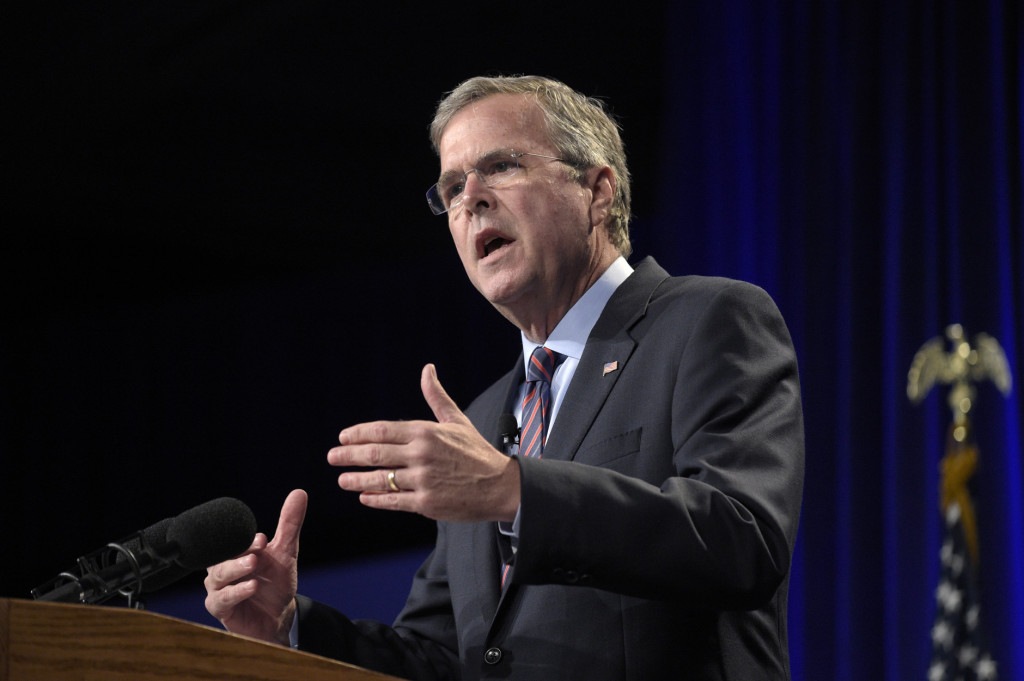
Jeb Bush expressed dissatisfaction with the U.S. Supreme Court decision that tax subsidies are still available to all those enrolled in an Obamacare plan, through either a state or the federal health insurance exchange. In a 6-3 ruling Thursday, the court affirmed the U.S. 4th Circuit Court of Appeals decision in King v. Burwell. The decision is seen as a major victory for Barack Obama’s administration. Bush, campaigning for the Republican presidential nomination in 2016, repeated his vow to repeal the Affordable Care Act if elected. He contends patients should be in charge of their own decisions, and health care reform should “actually lower costs.” “I am disappointed by today’s Supreme Court ruling in the King v. Burwell case,” the former Florida governor said in a statement. “But this decision is not the end of the fight against Obamacare.” The Obamacare challenge would have jeopardized nearly 1.28 million Floridians who signed up for health care through the federal exchange and received tax credits. Thirty-four states, including Florida, declined to create the exchanges. According to the U.S. Census Bureau, nearly 6-in-10 Americans (59.4 percent) live in states that chose not to set up their own insurance exchanges under the ACA. “This fatally flawed law imposes job-killing mandates, causes spending in Washington to skyrocket by $1.7 trillion, raises taxes by $1 trillion and drives up health care costs,” Bush said. “Instead of fixing our health care system, it made the problems worse. “As president of the United States, I would make fixing our broken health care system one of my top priorities. I will work with Congress to repeal and replace this flawed law with conservative reforms that empower consumers with more choices and control over their health care decisions. “Entrepreneurs should be freed to lower costs and improve access to care – just like American ingenuity does in other sectors of the economy. … Americans deserve leadership that can actually fix our broken health care system, and they are certainly not getting it now from Washington, D.C.”
Alabama politicians react to Supreme Court upholding Obamacare tax subsidies
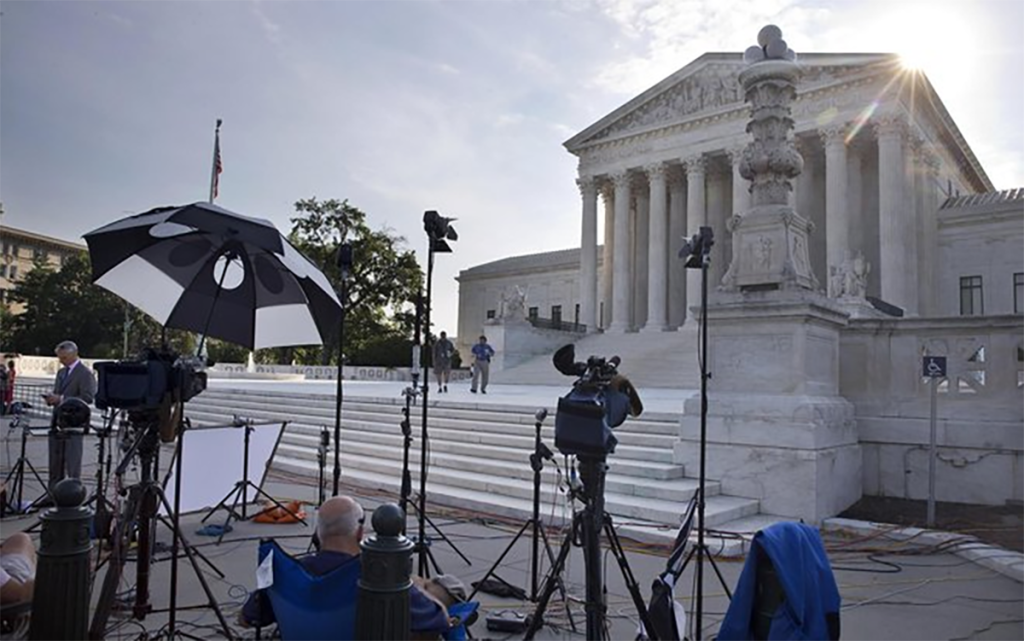
The Supreme Court on Thursday upheld the nationwide tax subsidies under President Barack Obama’s health care overhaul, in a ruling that preserves health insurance for millions of Americans. The Supreme Court ruled in a 6-3 decision on King v. Burwell that the 8.7 million Americans living in states without state based Obamacare exchanges are eligible to receive federal healthcare subsidies. The opinion was written by Chief Justice John Roberts, who also wrote the Obamacare opinion in 2012 upholding the individual mandate in the Affordable Care Act. Here is a compilation of reactions from Alabama’s elected officials and politicians: Gov. Robert Bentley: Today’s decision by the United States Supreme Court is disappointing. As the law is clearly written, subsidies do not apply to states that did not establish a state-based health insurance exchange. With today’s decision, the Supreme Court became an activist court by rewriting the law, clearly overstepping the role of the Judicial Branch to interpret the law. The Supreme Court had an opportunity to repair what I, as a physician, have always believed, that the Affordable Care Act is deeply flawed and does little to help improve the health of our citizens. As a physician and Governor of one of the 34 states that did not establish a state-based healthcare exchange, I agree with Justice Scalia in his dissent that States are clearly not the federal government and that definition of a state shouldn’t be rewritten for the purpose of this law. I believe the ACA is, at its core, enormously expensive for families and businesses and does little to address the health care issues we face in our state and nation. U.S. Sen. Richard Shelby: Today’s Supreme Court decision does not change the fact that Obamacare is an unworkable, deeply flawed, and damaging law. The problems with Obamacare go far beyond the issue debated in King v. Burwell and continue to harm American families and small businesses. Obamacare’s long list of broken promises has already caused Americans to struggle with higher premiums, to lose their preferred health insurance and doctors, and to be left with fewer choices. Despite this ruling, I remain committed to working with my colleagues to put an end to the negative impacts of this disastrous law. U.S Rep. Bradley Byrne (AL-01): Today’s ruling does not change the fact that Obamacare is an unworkable law that is hurting far too many families across Southwest Alabama and the United States. I will continue to push for a full repeal of the law and work toward patient-centered health care solutions that aren’t run by the federal government. U.S. Rep. Martha Roby (AL-02): So many people across the nation and throughout Alabama have been negatively affected by this law. Under Obamacare, many lost the health plans they liked. Many were forced to go to different doctors, to say nothing of the doctors who stopped practicing altogether. Premiums skyrocketed, and many middle class families are now impacted by new taxes, fees and penalties. I have repeatedly voted to repeal Obamacare and replace it with patient-centered health care that isn’t run by the government. This ruling does not change my commitment to working to replace the president’s health care law with policies that make sense. It does show how important it is for us to elect a president who will uphold the rule of law and appoint Supreme Court justices who will do the same. U.S. Rep. Robert Aderholt (AL-04): I am extremely disappointed with the Supreme Court’s decision today concerning Obamacare subsidies. The Supreme Court continues to see gray when it comes to the black letter of the law as written in Obamacare’s base text in the Affordable Care Act. If you look at the way the Democrats actually wrote the law, it seems to be very clear that subsidies were not available for those in the federal exchanges. This was not a typo. The language was written as it was written. U.S. Rep. Gary Palmer (AL-06): I’ve long been an advocate for repealing this unworkable and unaffordable law. Today’s decision by SCOTUS makes it even more imperative that Congress work to fully repeal it. As far as the opinion is concerned, I agree with Justice Scalia when he writes in dissent: The Court holds that when the Patient Protection and Affordable Care Act says “Exchange established by the State” it means “Exchange established by the State or the Federal Government.” That is of course quite absurd, and the Court’s 21 pages of explanation make it no less so …. This Court, however, concludes that this limitation would prevent the rest of the Act from working as well as hoped. So it rewrites the law to make tax credits available everywhere. We should start calling this law SCOTUScare. U.S. Rep. Terri Sewell (AL-07): Millions of Americans can finally breathe a sigh of relief. An estimated 6.4 million Americans will be able to keep their health insurance, including 17,000 people in my district! Chairman Terry Lathan, Alabama Republican Party: The nightmare continues for America with the United States Supreme Court upholding parts of the wildly unpopular Affordable Care Act, also known as Obamacare. This destructive legislation forced upon Americans pertaining to their health care and health insurance is an abomination and a plight on our nation. America is the most loving country in the world and our citizens should have access to superb health care, but this legislation is an albatross of government intervention and bureaucracy. It has little to do with care and mostly to do with more legislative strangleholds and controlling our daily lives. No American should be forced to sign up or buy health insurance that is not their choice. This alone is enough to remind us all how important the elections of 2016 will be to America. We must reverse this course, starting by removing Democrats from the White House all the way down to our county courthouses. Let us never forget the words of Barack Obama when he and the Democrats forced their will on all of America: ‘If you like your doctor, you can keep your doctor. If you like your health care plan, you
U.S. Supreme Court upholds nationwide health care law tax subsidies
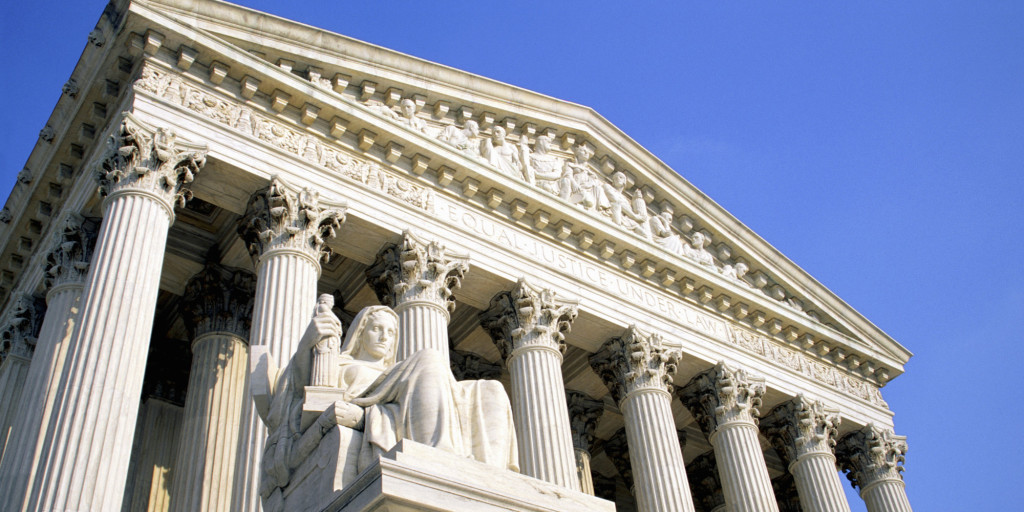
The U.S. Supreme Court on Thursday upheld the nationwide tax subsidies under President Barack Obama‘s health care overhaul, in a ruling that preserves health insurance for millions of Americans. The justices said in a 6-3 ruling that the subsidies that 8.7 million people currently receive to make insurance affordable do not depend on where they live, under the 2010 health care law. The outcome is the second major victory for Obama in politically charged Supreme Court tests of his most significant domestic achievement. It came the same day the court gave the administration an unexpected victory by preserving a key tool the administration uses to fight housing bias. Chief Justice John Roberts again voted with his liberal colleagues in support of the law. Roberts also was the key vote to uphold the law in 2012. Justice Anthony Kennedy, a dissenter in 2012, was part of the majority on Thursday. “Congress passed the Affordable Care Act to improve health insurance markets, not to destroy them,” Roberts wrote in the majority opinion. In a dissent he summarized from the bench, Justice Antonin Scalia said, “We should start calling this law SCOTUScare.” Using the acronym for the Supreme Court, Scalia said his colleagues have twice stepped in to save the law from what Scalia considered worthy challenges. Justices Samuel Alito and Clarence Thomas joined the dissent, as they did in 2012. Nationally, 10.2 million people have signed up for health insurance under the Obama health overhaul. That includes the 8.7 million people who are receiving an average subsidy of $272 a month to help pay their insurance premiums. Of those receiving subsidies, 6.4 million people were at risk of losing that aid because they live in states that did not set up their own health insurance exchanges. The challenge devised by die-hard opponents of the law, often derided by critics as “Obamacare,” relied on four words — “established by the state” — in the more than 900-page law. The law’s opponents argued that the vast majority of people who now get help paying for their insurance premiums are ineligible for their federal tax credits. That’s because about three dozen states opted against creating their own health insurance marketplaces, or exchanges, and instead rely on the federal healthcare.gov to help people find coverage if they don’t get insurance through their jobs or the government. In the challengers’ view, the phrase “established by the state” demonstrated that subsidies were to be available only available to people in states that set up their own exchanges. Those words cannot refer to exchanges established by the Health and Human Services Department, which oversees healthcare.gov, the opponents argued. The administration, congressional Democrats and 22 states responded that it would make no sense to construct the law the way its opponents suggested. The idea behind the law’s structure was to decrease the number of uninsured. The law prevents insurers from denying coverage because of “pre-existing” health conditions. It requires almost everyone to be insured and provides financial help to consumers who otherwise would spend too much of their paycheck on their premiums. The point of the last piece, the subsidies, is to keep enough people in the pool of insured to avoid triggering a so-called death spiral of declining enrollment, a growing proportion of less healthy people and premium increases by insurers. Several portions of the law indicate that consumers can claim tax credits no matter where they live. No member of Congress said that subsidies would be limited, and several states said in a separate brief to the court that they had no inkling they had to set up their own exchange for their residents to get tax credits. The 2012 case took place in the midst of Obama’s re-election campaign, when he touted the largest expansion of the social safety net since the advent of Medicare nearly a half-century earlier. But at the time, the benefits of the Affordable Care Act were mostly in the future. Many of its provisions had yet to take effect. In 2015, the landscape has changed, although the partisan and ideological divisions remain for a law that passed Congress in 2010 with no Republican votes. The case is King v. Burwell, 14-114. Republished with permission of The Associated Press.
Petition to restore Confederate Flag in AL blows away petition to remove it
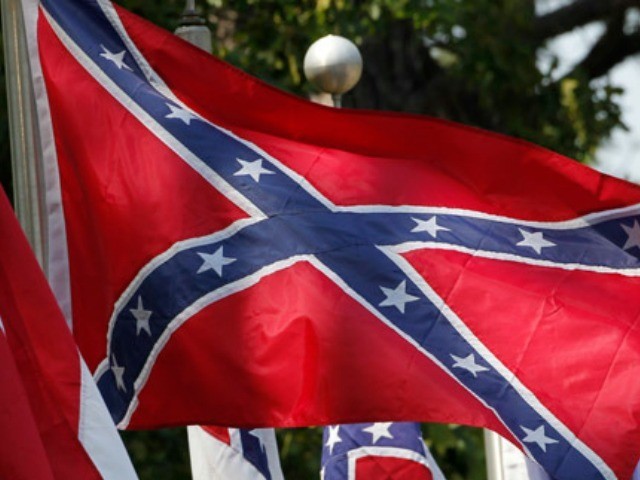
Wednesday morning Governor Robert Bentley gave a order to remove the Confederate Flag from state capitol grounds. Shortly thereafter a Change.Org petition to reinstate the flags was started by Phillip Giddens from Gadson. This petition as of the time this article went live was at 8,393 (June 25, 9:28am CST). The petition states: Mr. Bentley, after learning of your call to action to remove the Confederate flags from the State buildings this morning, it’s obvious to us, as citizens of this great state, that we, as your constituents, were not consulted. In efforts for political correctness, it seems that you have offended those in your own backyard. As an elected official, it is your job to act on our behalf, and we were surprised, to say the least, to know that you acted hastily and chose to not be a voice for those without your plaform. Return our flags. Do not apologize for our history and do not give into media propaganda. The South, and especially Alabama, is above conformity. Honor the past of those you represent. Give us back our flags. Another petition to remove the flags was started by Ralph Young of Birmingham last Friday it currently has 235 signatures. This petition states: Governor Bentley, it’s time to move Alabama forward. As we join the 21st-century economy, let’s not hamper growth with symbols that may be misinterpreted. I’m talking about the Alabama Capitol’s Confederate Battle Flag. Yes, to some this flag represents southern pride and heritage but many see it as a symbol of hate, separation, and segregation. As you recruit industries from around the world, let’s present a forward-looking, unified Alabama. Governor, do the right thing and remove the flag from Capitol grounds. Based on the governor’s statement yesterday it seems doubtful the petition to restore the flags will move him. See first update to this story here: “15,000 signatures and counting for petition to have Governor Bentley restore flag” Second update to this story including photos of Saturday’s rally can be found here.
GOP almost set for ’16, with only 3 governors left to get in race
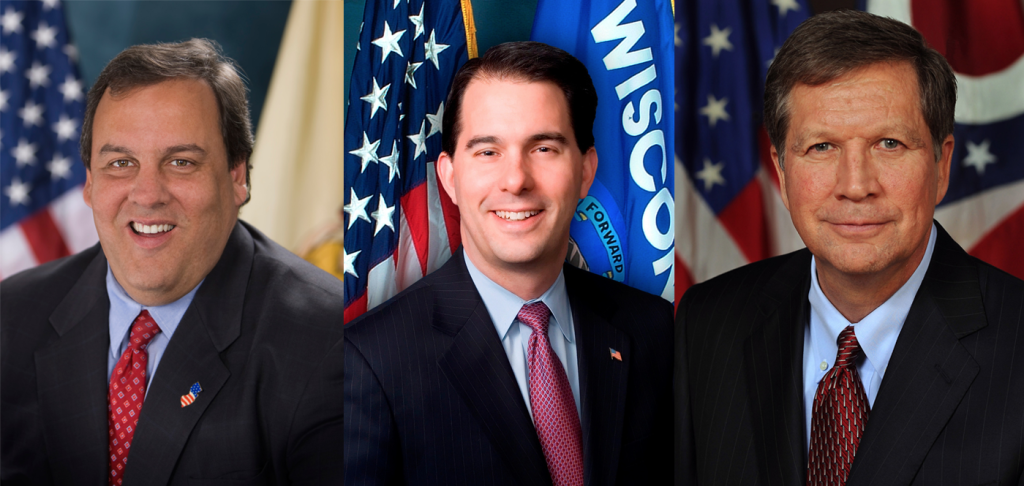
There was a time in Republican presidential politics when Chris Christie was a star, Scott Walker a mystery and John Kasich a memory. Oh, how things can change. Today, they are the last of the GOP’s undeclareds – a trio of ambitious governors whose fortunes have shifted dramatically in recent months, illustrating why it’s far too early to count anyone out in the GOP’s crowded and unruly White House race. “Does anyone remember me?” Kasich, who first ran for president more than a decade ago, said Wednesday as he looked out at a crowd of roughly 200 people gathered for his first Iowa appearance in years. “I’m shocked.” With Louisiana’s Gov. Bobby Jindal formally launching his presidential bid on Wednesday, 13 high-profile Republicans have officially entered the campaign for the party’s 2016 nomination. Only three major prospects remain: Ohio’s Kasich, Wisconsin’s Walker and New Jersey’s Christie, each planning to announce his intentions in the coming weeks. They are expected to join a field with five sitting or former senators, five current or former governors, two business leaders and a retired neurosurgeon. The “in or out” phase of the Republican presidential race is nearing its end, but with just over seven months until Iowa’s leadoff caucuses, no clear leader has emerged in the race for the nomination. “There’s so many candidates, it’s almost impossible for the average person to keep track,” said tea party leader Mark Meckler, who heads up the conservative group Citizens for Self-Governance. Yet the uncertainty in the race has as much to do with one candidate as any other: former Florida Gov. Jeb Bush. The son of one president and brother of another had hoped to overwhelm his Republican competitors by raising tens of millions of dollars and assembling top staff talent during the first half of this year. While aides say Bush’s fundraising has been impressive, he has struggled to break out in early polls, leaving room for party activists on the ground in early-voting states to consider new faces. Kasich is a new face only for those who don’t remember that, 16 years ago, he was a challenger to another presidential candidate named Bush. The 63-year-old Republican governor and former congressman ran a short-lived bid that was quickly dashed by Bush’s older brother, then-Texas Gov. George W. Bush. The often-blunt Kasich says he’s seriously looking at 2016 largely because of Jeb Bush’s inability to match his brother’s dominance, leaving room for a dark-horse candidacy such as his own to catch on. It doesn’t hurt that he posted an overwhelming re-election victory in 2014 in one of the nation’s premier swing states. “Everybody has a place. Everybody can rise,” Kasich said Wednesday, echoing a central theme of Bush’s candidacy. “It’s who delivers the biggest message and who can touch people’s hearts.” Christie, meanwhile, has almost been reduced to an afterthought due to lingering questions about his personality and political baggage following the George Washington Bridge scandal. And while he and Kasich lack Bush’s stacked bank account, they represent perhaps the most direct threat to Bush among those in the race. All three appeal to the party’s more moderate voters. Kasich and Christie were among the few Republican governors to expand Medicaid eligibility as part of President Barack Obama‘s health care law, they have prioritized treatment for drug addicts and the mentally ill, and both have shown a willingness to stand up to those in the farthest reaches of the party’s conservative base. Christie was once considered an early front-runner in the 2016 race, having passed on a bid in 2012. His backers have little doubt that he’s in, as he’s been raising money for both a political action committee and a super PAC, delivering meaty policy speeches and paying visits to key early-voting states – most notably New Hampshire. Kasich and Christie pose a particular challenge to Bush in the nation’s first presidential primary state, which typically favors pragmatic leaders over party ideologues. While Kasich made his first trip to Iowa since 1999 this week, he has been a regular to visitor to New Hampshire in recent months. And underscoring the importance of the state, a person familiar with Christie’s planning says his team has considered setting his official announcement there in an event that could come as early as next week. The person spoke to The Associated Press on condition of anonymity to discuss the topic ahead of Christie’s formal announcement. Walker, meanwhile, has surged into the top tier of his party’s presidential hopefuls after impressing Republicans in Iowa earlier this year, yet he remains largely unknown beyond his base in the Midwest and party activists. Some Republicans see him as having the ability to unite the GOP’s more conservative and moderate wings, and he has said his announcement will come in early- to mid-July. The question for all, Meckler said, is whether they can stand out. “Even knowing who’s in the field is becoming more and more difficult,” Meckler said. Republished with permission of The Associated Press.

